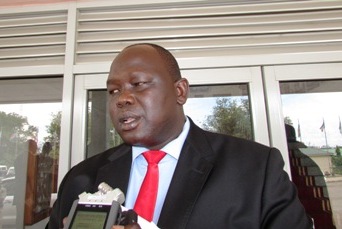S. Sudan parliament delays security bill discussions for second time
October 2, 2014 (JUBA) – South Sudan lawmakers cancelled a scheduled debate on a National Security Service (NSS) bill at the last minute on Thursday, and further delaying the adoption of the document.

MPs had raised concerns over the powers granted to the national security service in the bill to arrest “any person suspected of committing a crime or about to commit” a crime, as stipulated in section 50 of the bill. Deng said the item had been amended to read “suspects”, although security officials will still have powers to arrest people without a warrant.
He said the reason for the delay was that most MPs had not read the full text of the document or the amendments.
Deng said he will read the bill to MPs on Tuesday and hopes that the four-day break will give lawmakers a chance to go through the lines.
MPs refused to approve the bill in its third reading on Monday, demanding changes be made to various sections.
A draft seen by Sudan Tribune, which was to be presented to parliament on Thursday, states that NSS recruits must be university graduates or at least have finished secondary schooling or its equivalent.
A financial officer, approved by the ministry of finance, will manage the NSS budget, something MPs had demanded as opposed to the director of security being the account controller as previously written.
REJECT DRAFT BILL
Amnesty International said the new security bill, if passed in its current form, will grant the country’s NSS sweeping powers to arrest, detain, seize property and conduct searches thus calling for its rejection.
“The bill grants the National Security Service virtually unrestricted powers of arrest, search and seizure and is at odds with South Sudan’s Transitional Constitution and with regional and international human rights law and standards. It should not be passed in its current form,” said Elizabeth Deng, South Sudan researcher with Amnesty International.
“While the National Security Service urgently needs a legal mandate, any law passed must ensure appropriate limits on its powers and provide individuals adequate opportunity for redress. It grants officers immunity from criminal proceedings, opening the door to impunity,” she added.
The rights entity, however, urged lawmakers to improve public dissemination of the draft bill and all other bills being considered and make every effort to ensure easy, prompt, effective and practical access to these bills by citizens across the country.
(ST)
